- Home
- James Rollins
Bloodline: A Sigma Force Novel
Bloodline: A Sigma Force Novel Read online
DEDICATION
To three brothers and three sisters,
Cheryl, Doug, Laurie, Chuck, Billy, and Carrie.
After being in the trenches this past year, it seemed
fitting for us to be together here, too. Love you all.
CONTENTS
Cover
Title Page
Dedication
Map
Words from Assassinated Presidents
Notes from the Historical Record
Notes from the Scientific Record
Prologue
First: Present Day
1
2
3
4
5
6
7
8
9
10
11
12
13
14
15
16
17
Second: Heaven and Hell
18
19
20
21
22
23
24
25
26
27
28
29
30
31
Third: Hunting Grounds
32
33
34
35
36
37
38
39
40
41
42
43
Epilogue
Acknowledgments
Author’s Note to Readers: Truth or Fiction
About the Author
Also by James Rollins
Credits
Copyright
About the Publisher
MAP
Horn of Africa
WORDS FROM ASSASSINATED PRESIDENTS
On the existence and threat of modern-day secret societies:
We are opposed around the world by a monolithic and ruthless conspiracy that relies primarily on covert means for expanding its sphere of influence … building a tightly knit, highly efficient machine that combines military, diplomatic, intelligence, economic, scientific and political operations.
—JOHN F. KENNEDY, FROM A SPEECH GIVEN AT THE WALDORF-ASTORIA HOTEL ON APRIL 27, 1961
On life and death:
Surely God would not have created such a being as man, with an ability to grasp the infinite, to exist only for a day! No, no, man was made for immortality.
—ABRAHAM LINCOLN
NOTES FROM THE HISTORICAL RECORD
Throughout history, conspiracy theories abound. It is only human nature. We are forever looking for patterns amid chaos, for signs of the invisible puppeteer manipulating the grand scheme of lives, governments, and the path of mankind. Some of these shadowy plotters are cast as villains; others as great benefactors. Some of these secret cabals are based on historical facts; others are mere fanciful fictions; and yet even more are a Gordian knot of the two, woven so inexplicably together that the line between fact and fiction becomes a tangled tapestry of false history.
And for no other organization in history has this stood truer than the infamous Knights Templar.
In the early twelfth century, the order began as a group of nine knights, who swore to protect pilgrims on their way to and from the Holy Lands. From those humble beginnings, a great order would eventually grow in both wealth and power and spread across Europe until even popes and kings feared them. Then, on October 13, 1307, the king of France and the current pope conspired to arrest and disband the order, claiming great atrocities had been committed by the knights, including heresy. In the aftermath of that purge, legends and myths blurred the true fate of the order: stories of lost treasures abounded; tales spread of knights escaping persecution to arrive on the shores of the new World; and some reports even claim that the order still exists today, in secret and under guard, protecting a power that could reshape the world.
But let’s set aside such speculations and mythologies and go back to those original nine knights. What many do not know is that those nine founding members were all related by blood or marriage, arising from a single family. Eight of them are recorded by name in historical documents. The ninth remains a mystery and a source of much speculation today by historians. Who was this mysterious founding member of an order that would grow in such prominence in history and legend? Why was this last knight never named as plainly as the others?
The answer to that mystery is the beginning of a great adventure.
NOTES FROM THE SCIENTIFIC RECORD
On February 21, 2011, the cover of Time magazine declared: 2045, The Year Man Becomes Immortal. At face value, that might seem a wild claim, but other scientists have made similar statements. Dr. Ronald Klatz, in his book Advances in Anti-Age Medicine, wrote:
Within the next fifty years or so, assuming an individual can avoid becoming the victim of major trauma or homicide, it is entirely possible that he or she will be able to live virtually forever.
We are living in an exciting time when advances in medicine, genetics, technology, and a myriad of other disciplines are opening the newest frontier for mankind: eternity.
How will that manifest, what form will it take? Within these pages, you’ll discover that answer. The concepts raised in this novel are based on facts, on exhaustive research, going back to studies done by Soviet scientists during the Cold War. But before you turn to that first page, I must make one correction concerning the startling statements made above. They are, in fact, far too conservative in their estimates.
For not only is immortality within our reach—it is already here.
PROLOGUE
Summer 1134
Holy Lands
They once called her a witch and a whore.
But no longer.
She sat astride a gray destrier as the black-armored warhorse stepped gingerly through the carnage of battle. Bodies littered the fields ahead, Muslim and Christian alike. Her passage stirred the feasting crows and ravens, chasing them up into great black clouds in her wake. Other scavengers—those on two legs—picked through the dead, pulling off boots, yanking out arrows for their points and feathers. A few faces lifted to stare, then quickly turned away again.
She knew what they saw, another knight among the many who fought here. Her breasts were hidden under a padded habergeon and a hauberk of mail. Her dark hair, cropped to her shoulders, shorter than most men’s, lay under a conical helmet; her fine features further obscured by a nasal bar. Strapped to the side of her saddle, a double-edged broadsword bumped against her left knee, ringing off the mail chausses that protected her long legs.
Only a few knew she was not a man—and none knew she held secrets far darker than her hidden gender.
Her squire waited for her at the edge of a rutted road. The path wound steeply up to an isolated stone keep. The hulking structure, hidden deep within the Naphtali Mountains of Galilee, had no name and looked as if it had been carved out of the hill itself. Beyond its battlements, the red sun sat low on the horizon, obscured by the smoke from campfires and torched fields.
The young squire dropped to a knee as she drew her horse to a halt beside him.
“Is he still there?” she asked.
A nod. Frightened. “Lord Godefroy awaits you ahead.”
Her squire refused to look in the direction of the stone-crowned keep. She had no such reluctance. She tilted her helmet up to get a better view.
At long last …
She had spent sixteen years—going back to when her uncle founded the order of the Poor Knights of the Temple of Jerusalem—searching for the impossible. Even her uncle did not understand her request t
o join the Templars, but her side of the family would not be refused. So she had been given the white mantle of the order and folded in among the original nine, hidden away, as faceless as the helmet she wore, while the order grew around her both in number and prominence.
Others of her family, of her bloodline, continued to manipulate the knightly order from within and without: gathering wealth and knowledge, searching for powerful relics from lost crypts and ancient crèches across Egypt and the Holy Lands. Despite their best planning, they’d certainly had their failures. Just a year ago, they’d missed acquiring the bones of the magi—the relics of the three biblical kings, said to hold the secrets to lost alchemies.
She would not let today mark another failure.
With a snap of the reins, she urged her horse up the rocky path. With each passing step, the number of dead grew as the guardians of the keep put up a final and futile struggle to withstand the assault. Reaching the summit of the hill, she found the gates to the keep broken and splintered, battered apart by a massive steel-shod ram.
A pair of knights guarded the way forward. Both nodded to her. The younger of the two, fresh to the order, had sewn a crimson cross over his heart. Other Templars had begun to take up the same habit, a symbol to mark their willingness to shed their own blood for the cause. The grizzled and pocked older warrior simply wore the traditional white surcoat over his armor, like herself. The only decoration upon their mantles was the crimson blood of the slain.
“Godefroy awaits you in the crypt,” the older knight said and pointed beyond the gates to the inner citadel.
She led her destrier through the ruins of the gate and quickly dismounted with a flourish of her mantle. She left her broadsword with her mount, knowing she had no fear of being ambushed by some lone surviving protector of the keep. Lord Godefroy, for all his troubles, was thorough. As testament to his diligence, all across the open courtyard, wooden pikes bore the heads of the last defenders. Their decapitated remains piled like so much firewood along a back wall.
The battle was over.
Only the spoils remained.
She reached a door that opened to shadows. A narrow stair, rough-hewn and cut from the stone of the mountain, led down beneath the keep. The distant orange-red flicker of a torch marked the end of the steps far below. She descended, her footfalls hurrying only at the last.
Could it be true? After so many years …
She burst into a long chamber, lined to either side by stone sarcophagi, well over a score of them. Sweeping through, she barely noted the Egyptian writing, lines of symbols hinting at dark mysteries going back before Christ. Ahead, two figures stood bathed in torchlight at the rear of the chamber: one standing, the other on his knees, leaning on a staff to hold himself upright.
She crossed toward them, noting that the last sarcophagus had been pried open, its stone lid cracked on the floor beside it. It seemed somebody had already begun looking for the treasure hidden here. But the violated crypt held nothing but ash and what appeared to be bits of dried leaf and stem.
The disappointment showed on Lord Godefroy’s face as she approached the pair. “So you come at last,” he said with false cheer.
She ignored the knight. He stood a head taller than she did, though he shared the same black hair and aquiline nose, marking their common ancestry out of southern France, their families distantly related.
She dropped to her knees and stared into the face of the prisoner. His features were tanned to a burnished shade, his skin smooth as supple leather. From under a fall of dark hair, black eyes stared back at her, reflecting the torchlight. Though on his knees, he showed no fear, only a deep welling of sadness that made her want to slap him.
Godefroy drew down beside her, intending to interfere, to try to ingratiate himself into what he must have sensed was of great importance. And though he was one of the few who knew her true identity, he knew nothing of her deeper secrets.
“My lady …” he started.
The eyes of the prisoner narrowed at the revelation, fixing her with a harder stare. All trace of sadness drained away, leaving behind a flicker of fear—but it quickly vanished.
Curious … does he know of our bloodline, our secrets?
Godefroy interrupted her reverie and continued, “Upon your instructions, we’ve spent many lives and spilled much blood to find this place hidden by rumor and guarded as much by curses as by infidels—all to find this man and the treasure he guards. Who is he? I have earned such knowledge upon the point of my sword.”
She did not waste words on fools. She spoke instead to the prisoner, using an ancient dialect of Arabic. “When were you born?”
Those eyes bore into her, even pushing her back by the sheer force of his will, a buffeting wind of inner strength. He seemed to be judging whether to offer her a lie, but from whatever he found in her face, he recognized the futility of it.
When he spoke, his words were soft but came from a place of great weight. “I was born in Muharram in the Hijri year five-and-ninety.”
Godefroy understood enough Arabic to scoff. “The year ninety-five? That would make him over a thousand years old.”
“No,” she said, more to herself than him, calculating in her head. “His people use a different accounting of years than we do, starting when their prophet Muhammad arrived in Mecca.”
“So the man here is not a thousand years old?”
“Not at all,” she said, finishing the conversion in her head. “He’s only lived five hundred and twenty years.”
From the corner of her eye, she noted Godefroy turn toward her, aghast.
“Impossible,” he said with a tremulous quaver that betrayed the shallow depth of his disbelief.
She never broke from the prisoner’s gaze. Within those eyes, she sensed an unfathomable, frightening knowledge. She tried to picture all he had witnessed over the centuries: mighty empires rising and falling, cities thrusting out of the sands only to be worn back down by the ages. How much could he reveal of ancient mysteries and lost histories?
But she was not here to press questions upon him.
And she doubted he would answer them anyway.
Not this man—if he could still be called a man.
When next he spoke, it came with a warning, his fingers tightening on his staff. “The world is not ready for what you seek. It is forbidden.”
She refused to back down. “That is not for you to decide. If a man is fierce enough to grasp it, then it is his right to claim and possess it.”
He stared back at her, his gaze drifting to her chest, to what was hidden beneath hard armor. “So Eve herself believed in the Garden of Eden when she listened to the snake and stole from the Tree of Knowledge.”
“Ah,” she sighed, leaning closer. “You mistake me. I am not eve. And it is not the Tree of Knowledge I seek—but the Tree of Life.”
Slipping a dagger from her belt, she quickly stood and drove the blade to its hilt under the prisoner’s jaw, lifting him off his knees with her strength of will. In that single thrust, the endless march of centuries came to a bloody halt—along with the danger he posed.
Godefroy gasped, stepping back. “But is this not the man you came so far to find?”
She yanked free the dagger, spraying blood, and kicked the body away. She caught the staff before it fell free from the prisoner’s slack fingers.
“It was not the man I sought,” she said, “but what he carried.”
Godefroy stared at the length of olive wood in her hand. Fresh blood flowed in rivulets down its surface, revealing a faint carving along its length: an intricate weave of serpents and vines, curling around and around the shaft.
“What is it?” the knight asked, his eyes wide.
She faced him fully for the first time—and drove her blade into his left eye. He had seen too much to live. As he fell to his knees, his body wracking itself to death in ghastly heaves upon her dagger’s point, she answered his last question, her fingers firm on the ancient wooden
rod.
“Behold the Bachal Isu,” she whispered to the centuries to come. “Wielded by Moses, carried by David, and borne by the King of Kings, here is the staff of Jesus Christ.”
Fourth of July:
Five days from now
The assassin stared through the rifle’s scope and lowered the crosshairs to the profile of President James T. Gant. He double-checked his range—seven hundred yards—and fixed the main targeting chevron of the USMC M40A3 sniper rifle upon the occipital bone behind the man’s left ear, knowing a shot there would do the most damage. Festive music and bright laughter from the holiday picnic filtered through his earpiece. He let it all fade into the background as he concentrated on his target, on his mission.
In U.S. history, three presidents had died on the exact same day, on July 4, on the birthday of this country. It seemed beyond mere chance.
Thomas Jefferson, John Adams, and James Monroe.
Today would mark the fourth.
Steadying his breath, Commander Gray Pierce pulled the trigger.
FIRST
PRESENT DAY
1
June 30, 11:44 A.M. EST
Takoma Park, Maryland
Gray Pierce pulled into the driveway with a coughing growl of the 1960 Thunderbird’s V-8 engine.
He felt like growling himself.
“I thought the plan was to sell this place?” Kenny asked.
Gray’s younger brother sat in the passenger seat, his head half out the window, staring up at the craftsman bungalow with the wraparound wooden porch and overhanging gable. It was their family home.
“Not any longer,” Gray answered. “And don’t mention any of that to Dad. His dementia makes him paranoid enough.”
“How is that different from any other day …?” Kenny mumbled sourly under his breath.
Gray glowered at his brother. He’d picked Kenny up at Dulles after a cross-country flight from Northern California. His brother’s eyes were red-rimmed from jet lag—or maybe from too many small bottles of gin in first class. At this moment, Kenny reminded Gray of their father, especially with the pall of alcohol on his breath.

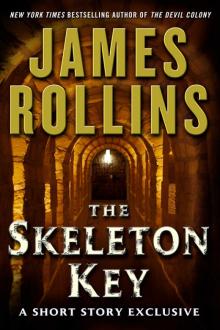 The Skeleton Key
The Skeleton Key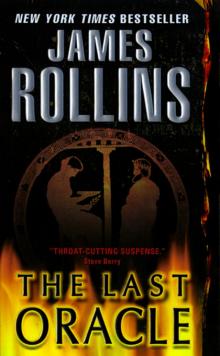 The Last Oracle
The Last Oracle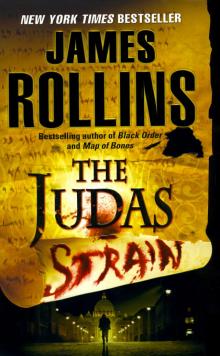 The Judas Strain
The Judas Strain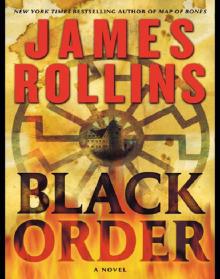 Black Order
Black Order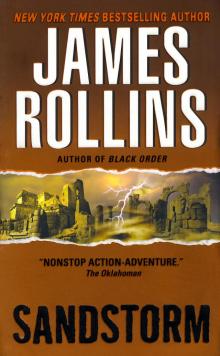 Sandstorm
Sandstorm Ghost Ship
Ghost Ship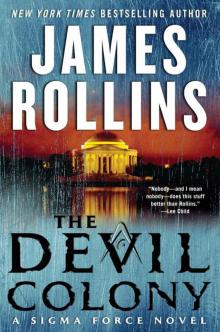 The Devil Colony
The Devil Colony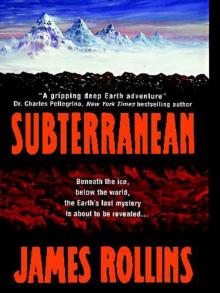 Subterranean
Subterranean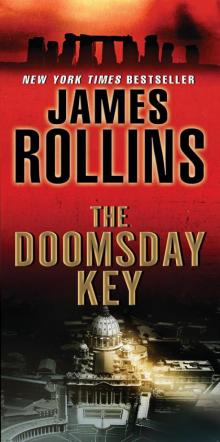 The Doomsday Key
The Doomsday Key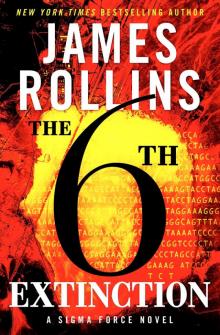 The 6th Extinction
The 6th Extinction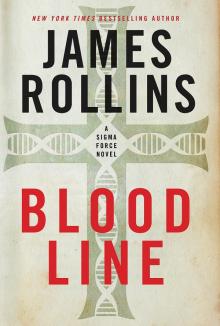 Bloodline
Bloodline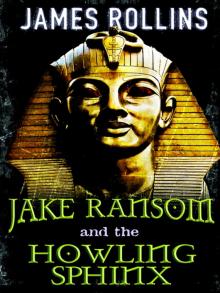 Jake Ransom and the Howling Sphinx
Jake Ransom and the Howling Sphinx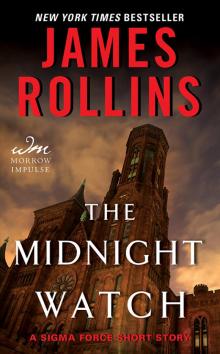 The Midnight Watch
The Midnight Watch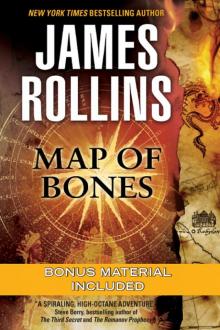 Map of Bones
Map of Bones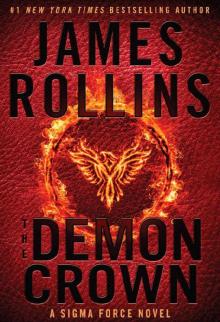 The Demon Crown
The Demon Crown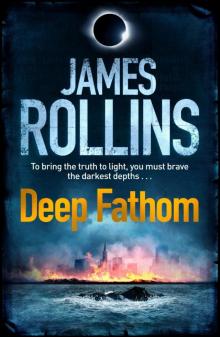 Deep Fathom
Deep Fathom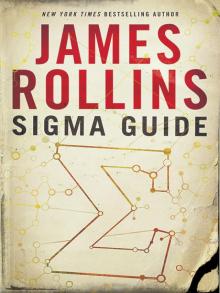 Sigma Guide
Sigma Guide Kowalski's in Love
Kowalski's in Love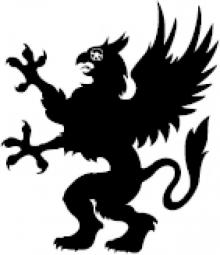 Jake Ransom and the Skull King's Shadow
Jake Ransom and the Skull King's Shadow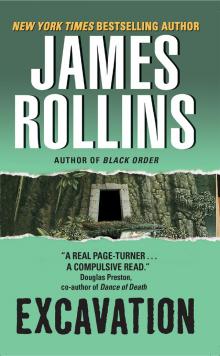 Excavation
Excavation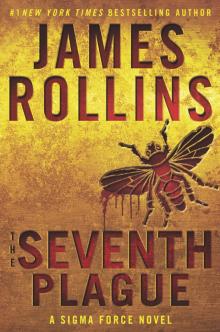 The Seventh Plague
The Seventh Plague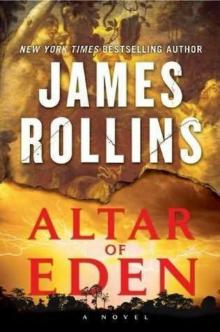 Altar of Eden
Altar of Eden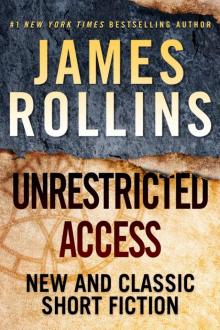 Unrestricted Access: New and Classic Short Fiction
Unrestricted Access: New and Classic Short Fiction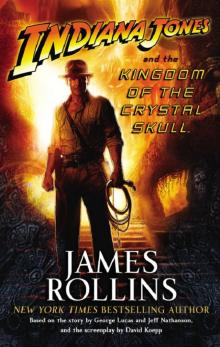 Indiana Jones and the Kingdom of the Crystal Skull
Indiana Jones and the Kingdom of the Crystal Skull Crucible
Crucible The Eye of God
The Eye of God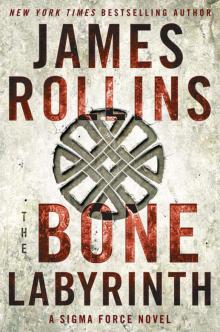 The Bone Labyrinth
The Bone Labyrinth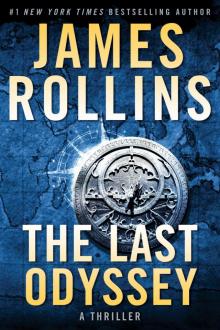 The Last Odyssey: A Thriller
The Last Odyssey: A Thriller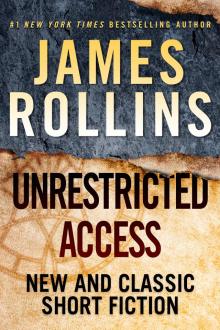 Unrestricted Access
Unrestricted Access Amazonia
Amazonia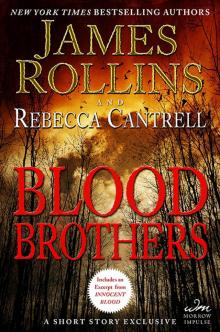 Blood Brothers: A Short Story Exclusive
Blood Brothers: A Short Story Exclusive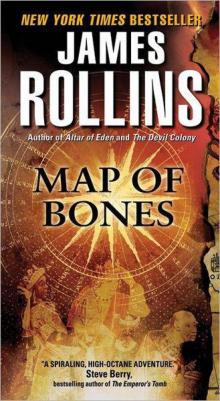 Map of Bones: A Sigma Force Novel
Map of Bones: A Sigma Force Novel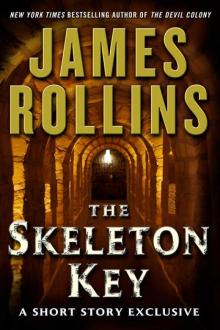 The Skeleton Key (sigma force)
The Skeleton Key (sigma force)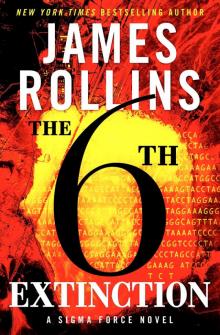 Sigma Force 10 - The Sixth Extinction
Sigma Force 10 - The Sixth Extinction Innocent Blood
Innocent Blood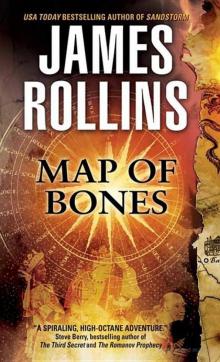 Map of Bones sf-2
Map of Bones sf-2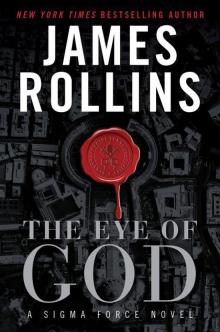 The Eye of God: A Sigma Force Novel
The Eye of God: A Sigma Force Novel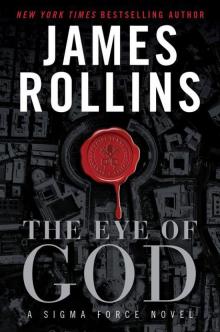 The Eye of God: A Sigma Force Novel sf-9
The Eye of God: A Sigma Force Novel sf-9 The Pit
The Pit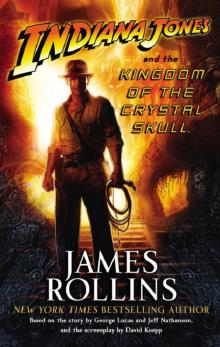 Indiana Jones and the The Kingdom Of The Crystal Skull
Indiana Jones and the The Kingdom Of The Crystal Skull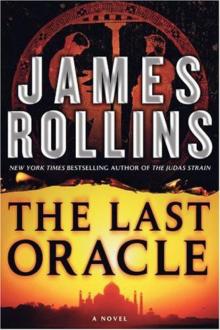 The Last Oracle (2008) sf-5
The Last Oracle (2008) sf-5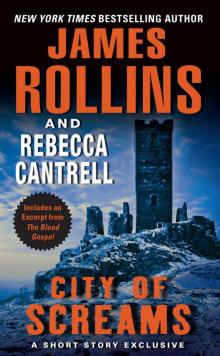 City of Screams
City of Screams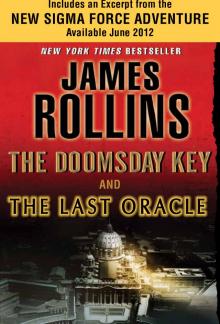 The Doomsday Key and The Last Oracle with Bonus Excerpts
The Doomsday Key and The Last Oracle with Bonus Excerpts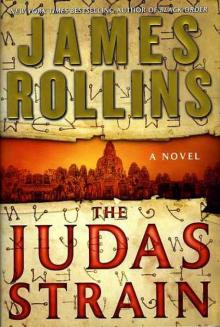 The Judas Strain sf-4
The Judas Strain sf-4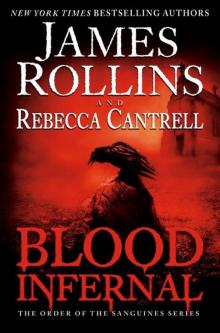 Blood Infernal
Blood Infernal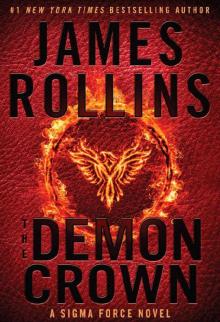 The Demon Crown: A Sigma Force Novel
The Demon Crown: A Sigma Force Novel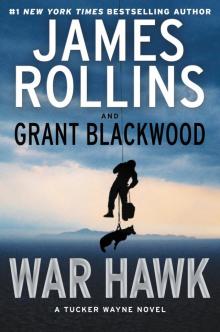 War Hawk: A Tucker Wayne Novel
War Hawk: A Tucker Wayne Novel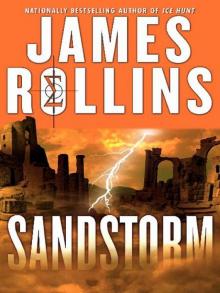 SANDSTORM sf-1
SANDSTORM sf-1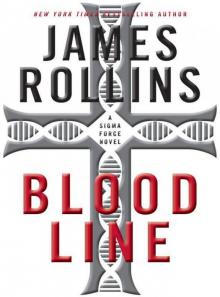 Bloodline: A Sigma Force Novel
Bloodline: A Sigma Force Novel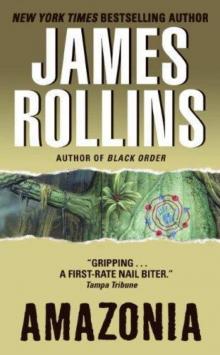 Amazonia: a novel
Amazonia: a novel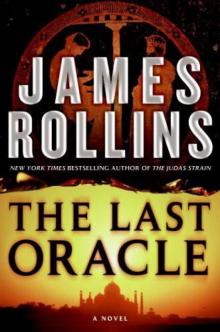 The Last Oracle: A Sigma Force Novel
The Last Oracle: A Sigma Force Novel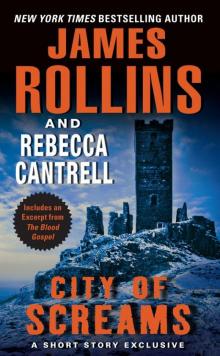 City of Screams (the order of the sanguines)
City of Screams (the order of the sanguines) Ghost Ship: A Sigma Force Short Story
Ghost Ship: A Sigma Force Short Story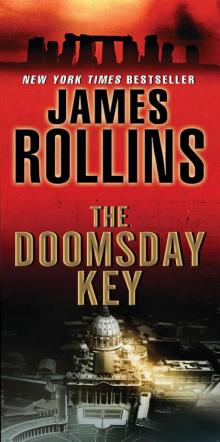 The Doomsday Key: A Sigma Force Novel
The Doomsday Key: A Sigma Force Novel